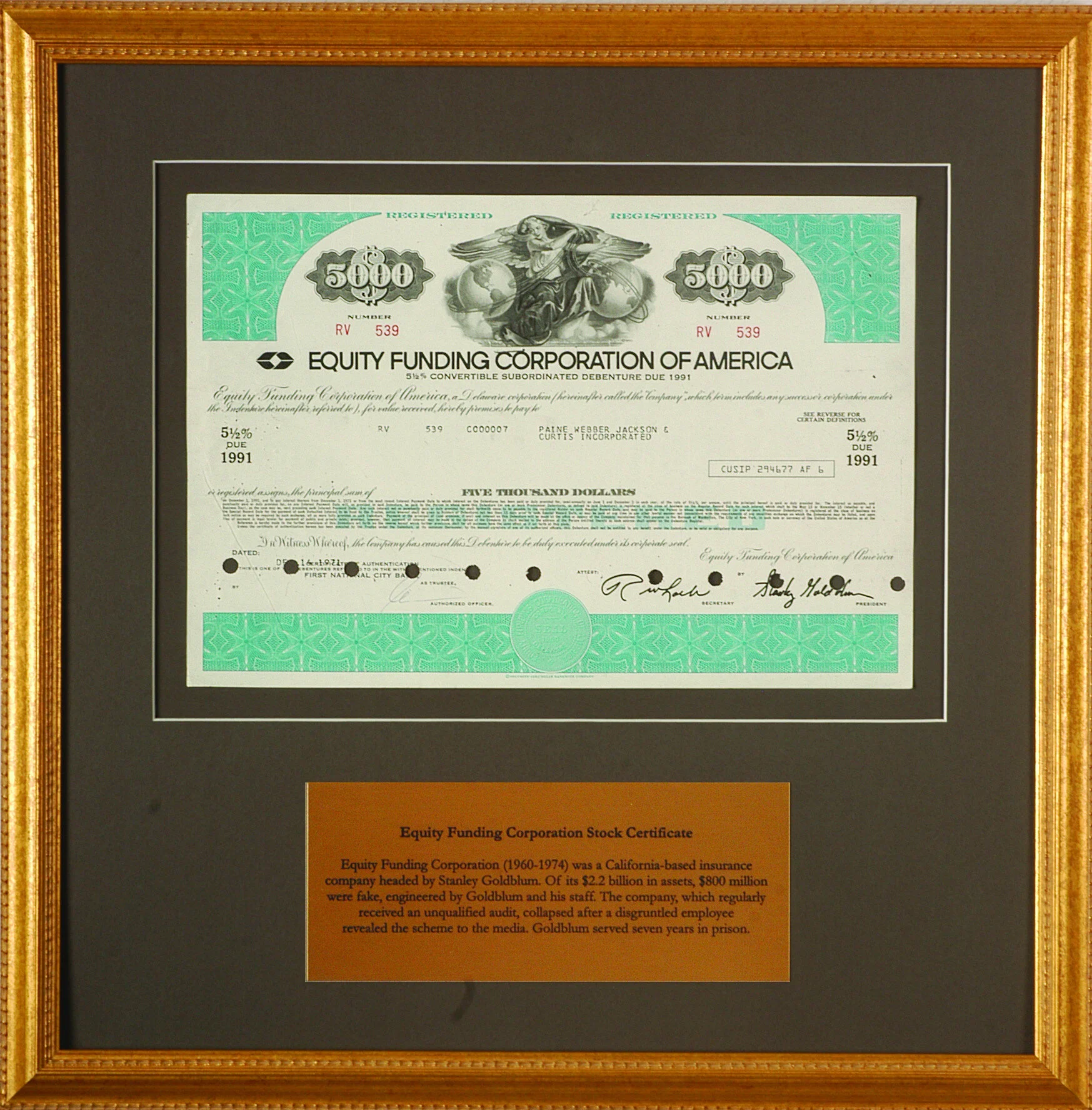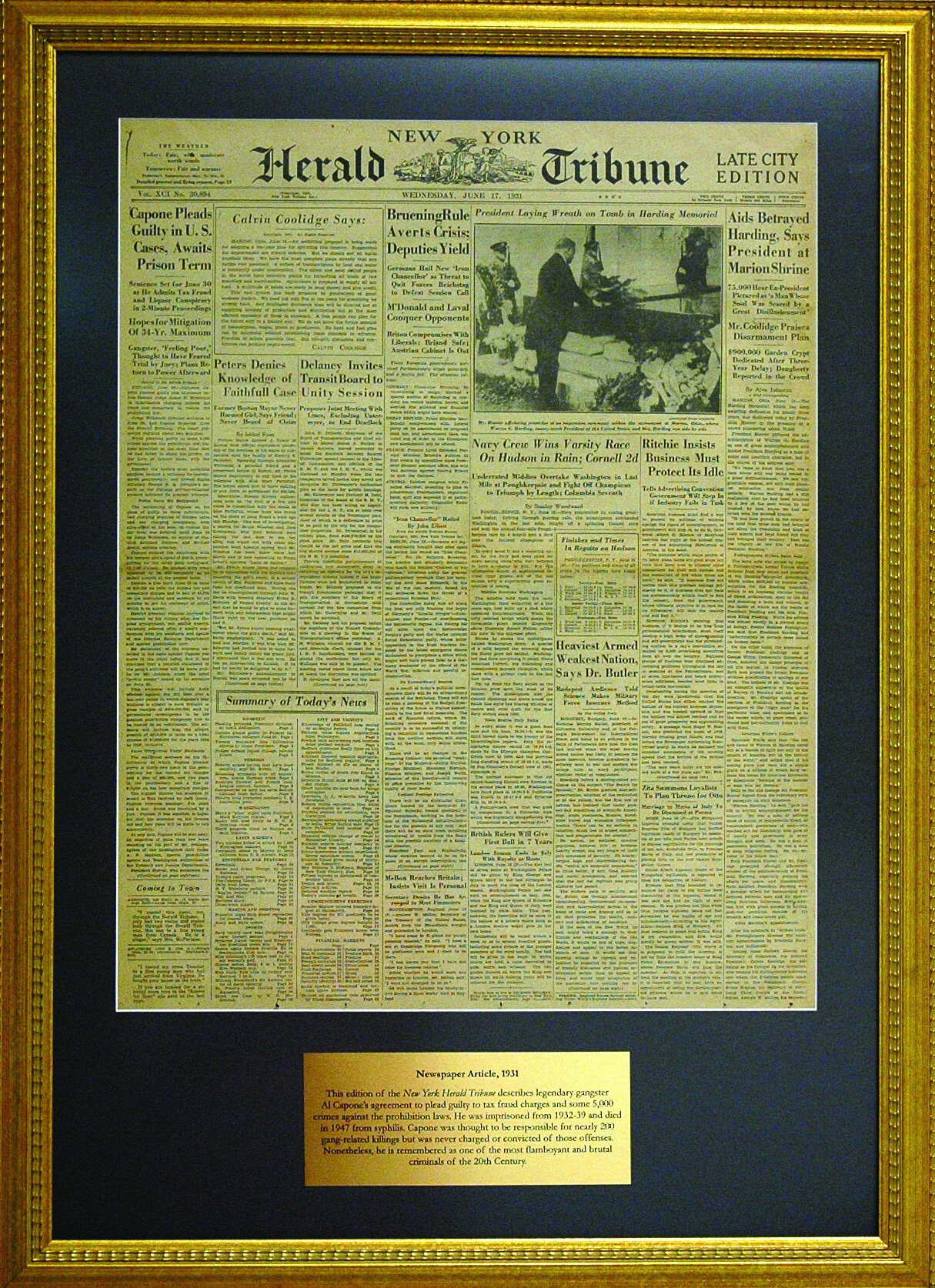Fraud Museum Game: Breaking Through Lies (Giveaway)
/SPONSORED BY FRAUD MAGAZINE
Made up of artifacts, memorabilia, documents and other pieces of fraud history collected by ACFE founder and Chairman Dr. Joseph T. Wells, CFE, CPA, this year’s Fraud Museum game showcases times when truth broke through the elaborate lies of fraudsters.
To participate in this year’s game, read the questions below and answer the questions in this quiz to be entered for your chance to win a $250 gift card. The game begins, Monday, June 14, and will close at 11:59 p.m. Central Time, Wednesday, June 23. Only conference attendees are eligible participate. Please read the official rules before submitting your entry. The winner will be notified via email and will be announced in the Conference Recap newsletter, Monday, June 28.
George Graham Rice was one of the more colorful con artists of the early 20th Century. Born on New York’s Lower East Side as Jacob Simon Herzig, Rice showed an early flair for deception and by 1900 was incarcerated at Elmira Reformatory. Upon his release, he turned to horseracing to support his lavish lifestyle. Rice even invented the “tip sheet” which is still widely used. By 1904, Rice was back behind bars for mail fraud and would eventually serve four separate terms in prison. But each time he was released, Rice would begin a new scheme. One of the first involved stock swindles, which were made possible by him publishing a weekly newspaper, The Iconoclast, which gave investors advice on securities that they should purchase. What victims didn’t know was that the overvalued and fraudulent stocks he touted were his own. Before the advent of market regulation in the 1930s, stocks were commonly sold through what were called “bucket shops,” so Rice chose the same method.
Some of these establishments were legitimate; most were not. Their owners used investors’ money as if it were theirs. In one five-year period alone ending in about 1906, bucket shops went into bankruptcy owing their customers more than $212 million. Today, that sum would equal over a billion dollars. Rice bragged openly that The Iconoclast, circulation 300,000, was “America’s biggest sucker list” and he owned it. When this shyster’s methods were uncovered, Rice went back to jail. After serving this sentence, Rice headed west to lucrative mining scams. A few years later this netted him a third prison term, where he wrote a 334-page book entitled “My Adventures with Your Money.” It mostly bragged about the author’s skill at financial trickery. One classic line: “I make a conservative statement when I say I brought in $30 million from Greenwater (a bogus mining venture) in less than four months. Yet the suckers were crying for more.” When he was paroled, Rice headed back to fraudulent mining stocks, which netted him his fourth and final trip to the penitentiary.
Therese Humbert claimed to be the heiress of a wealthy American, Robert Henry Crawford, whose life she saved in one of the earliest motorcar accidents. His largess allowed her to live in one of the grandest homes in Paris, filled with precious antiques, and permitted her to own a lucrative plantation of cork oaks in Portugal. Crawford’s will was kept in a strongbox by Humbert. Based on this information, she was given today’s equivalent of $200 million by French investors.
As it turned out, there was no will, inheritance or plantation, and the strongbox contained only a trouser-button and an Italian coin. After being convicted in one of the most sensational trials at the turn of the 20th Century, Humbert was sentenced to 10 years in prison.
Spiro T. Agnew (1918-1996) was the 39th Vice President of the U.S. and the only one ever to resign in disgrace. Agnew had a meteoric political ride, rising from an appointment on the Baltimore County Board of Appeals to Maryland’s Governor to U.S. Vice President in less than six years. Agnew was picked by U.S. president Richard M. Nixon to appeal to the “Southern Strategy,” meaning that he was sufficiently from the South to be attractive to those voters, but not from the Deep South, which would have presumably turned off Northerners.
Nixon’s plan worked; he was elected to office in 1968. Spiro became the president’s hatchet man on supporting the Vietnam War and was known for his vicious attacks on political opponents, coining such forgettable phrases as “nattering nabobs of negativism” and “hopeless, hysterical hypochondriacs of history.”
Agnew’s success in federal politics was short-lived when it was revealed that as the Governor of Maryland, he demanded and received at least $29,500 in bribes from state road building contractors. Later, he turned over an additional $250,000 to the government for other misdeeds. Although Agnew escaped prison, he was fined $10,000 and placed on three years’ probation through a negotiated plea deal; his rising political career was ruined. The former Vice President died in obscurity in 1996.
Equity Funding Corporation (1960-1974) was a California-based insurance company headed by Stanley Goldblum. Of its $2.2 billion in assets, $800 million were fake, engineered by Goldblum and his staff. The company, which regularly received an unqualified audit, collapsed after a disgruntled employee revealed the scheme to the media. Goldblum served seven years in prison.
This edition of the New York Herald Tribune describes legendary gangster Al Capone’s agreement to plead guilty to tax fraud charges and some 5,000 crimes against the prohibition laws. He was imprisoned from 1932- 39 and died in 1947 from syphilis. Capone was thought to be responsible for nearly 200 gang-related killings but was never charged or convicted of those offenses. Nonetheless, he is remembered as one of the most flamboyant and brutal criminals of the 20th Century.
In the late 1980’s, Ivan Boesky’s name became synonymous with insider trading on Wall Street. After being caught, Boesky informed on his fellow traders, including Michael Milken, and received a three-and-a-half-year prison sentence and a fine of $100 million.








